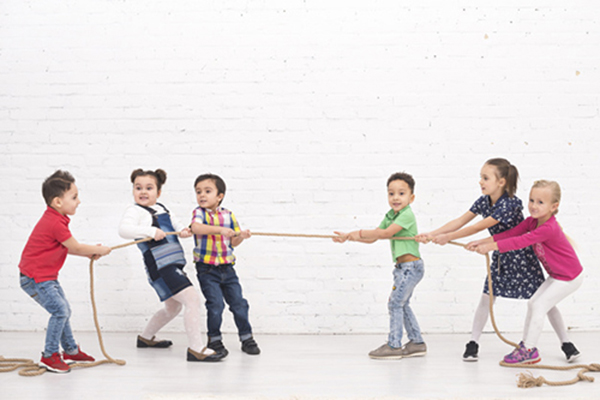Traditional games have been a part of human culture for centuries. Whether it’s playing chess, tag, hopscotch, or hide-and-seek, these games have entertained generations, bringing people together through fun and competition. However, the way we play has evolved dramatically in recent years. With the rise of digital technology, traditional games have found a new life online and in virtual formats.
This shift from physical to digital has transformed the gaming experience, blending the simplicity of old-school games with the innovation of modern technology. But how has this transition changed the way we enjoy traditional games? Let’s dive into the fascinating journey of how traditional games are being adapted for the digital age.
The Appeal of Traditional Games
Traditional games hold a special place in our hearts. They’re not just a source of entertainment—they teach us social skills, strategy, and teamwork. Games like Ludo, Monopoly, and card games like Poker or Rummy have been staples of family gatherings for decades.
What makes these games timeless is their simplicity and accessibility. You don’t need expensive equipment or high-tech devices to play them. A few cards, a dice, or even just your imagination is enough to start the fun. This universal appeal has made them perfect candidates for adaptation into the digital world.

Why Digitize Traditional Games?
The shift to digital formats isn’t just about convenience—it’s about keeping these games relevant. In today’s fast-paced world, fewer people have the time or space to gather around a physical board game. Digital versions make it easier for friends and family to play together, no matter where they are in the world.
Another reason for digitization is the growing popularity of online gaming. The younger generation, in particular, spends more time on phones, tablets, and computers. By adapting traditional games to these platforms, developers ensure these classics remain a part of modern entertainment.
The Transition: From Board to Screen
The journey from physical to digital often starts with understanding what makes a game special. Developers focus on maintaining the essence of traditional games while enhancing them with digital features. Let’s take a closer look at how some popular games have made this transition:
Ludo
Ludo, a classic board game, has seen a massive resurgence thanks to apps like “Ludo King.” The digital version retains the same rules but adds features like online multiplayer, chat options, and colorful graphics. Players can now compete with friends across the globe without needing a physical board or dice.
Chess
Chess has been played for centuries, but its digital adaptation has brought the game to a wider audience. Platforms like Chess.com and apps like “Lichess” allow players to compete with opponents worldwide, analyze their moves, and even play against AI opponents of varying difficulty levels. These features have made chess more accessible and appealing to beginners and experts alike.
Card Games
Card games like Solitaire, Poker, and Rummy have also found immense popularity online. Apps and websites offer these games with added twists like tournaments, leaderboards, and custom themes. Digital versions eliminate the need for physical decks, shuffling, or dealing, making gameplay faster and smoother.
Adding Modern Twists
One of the exciting aspects of adapting traditional games for the digital age is the opportunity to add modern elements. Developers use technology to make these games more interactive and engaging:
Augmented Reality (AR) and Virtual Reality (VR)
AR and VR are game-changers when it comes to merging traditional and digital gaming. Imagine playing a game of Snakes and Ladders where the board comes to life on your living room floor through AR. VR, on the other hand, allows players to immerse themselves in 3D environments, bringing games like chess or checkers to life with realistic animations.
Customization and Personalization
Digital versions often allow players to customize their games. You can choose your avatar, design your board, or even create unique game rules. This level of personalization keeps players invested and makes every session feel unique.
Online Communities
Many digital adaptations include chat features, forums, or social media integration, creating communities around these games. Whether it’s discussing strategies or simply making new friends, these platforms connect players like never before.

The Educational Side of Digital Games
Traditional games have always had an educational side—teaching players math, strategy, and critical thinking. Digital adaptations take this a step further by offering features like tutorials, hints, and skill-building exercises.
For instance, digital chess platforms often include lessons from grandmasters, while apps for word games like Scrabble or Crosswords help players expand their vocabulary. These features not only preserve the educational value of traditional games but enhance it for the digital age.
Challenges in the Digital Transition
Adapting traditional games for the digital age isn’t without challenges. Developers must strike a balance between maintaining the essence of the original game and adding modern features. Too many changes can alienate fans of the classic version, while too few might make the digital version feel outdated.
Another challenge is accessibility. While digital games are convenient, they require devices and an internet connection, which may not be available to everyone. This raises questions about whether digital versions can truly replace physical games in all situations.
7. The Role of Nostalgia
Nostalgia plays a significant role in the success of digital adaptations. People are drawn to games they remember from childhood, and digital versions often capitalize on this emotional connection. By recreating familiar visuals, sounds, and gameplay mechanics, developers tap into the comforting feeling of reliving old memories in a new format.
The Future of Traditional Games in the Digital World
As technology continues to evolve, so will the ways we play traditional games. Here are some exciting possibilities for the future:
AI Opponents
Advanced AI will make digital games even more challenging and rewarding. Players could face opponents that adapt to their skills, providing a more dynamic experience.
Cross-Platform Play
Imagine starting a game on your phone, continuing it on your computer, and finishing it on a VR headset. Cross-platform play will make games more seamless and flexible.
Blockchain and NFTs
Some developers are exploring blockchain technology to create unique game pieces or tokens that players can own, trade, or use across different platforms.
Interactive Learning
Future digital games could use AI and machine learning to teach players in real-time, adapting to their skill level and offering personalized guidance.
9. Keeping Tradition Alive
While digital adaptations bring convenience and innovation, it’s essential not to lose the social and tactile experiences that traditional games provide. Playing a board game around a table with family or kicking a ball in the park offers a sense of connection that screens can’t replicate. The best approach is to embrace both worlds—enjoying digital versions when apart and returning to physical games when together.
Conclusion: A New Era for Classic Games
The digital age has opened up endless possibilities for traditional games, breathing new life into timeless classics. By blending old-world charm with modern technology, these games are more accessible, engaging, and inclusive than ever before.
As we move forward, it’s exciting to imagine how traditional games will continue to adapt, keeping us entertained, connected, and challenged. Whether you’re playing chess on a VR headset or a card game on your phone, one thing is certain—traditional games will always have a place in our hearts, no matter how much the world around them changes.



















